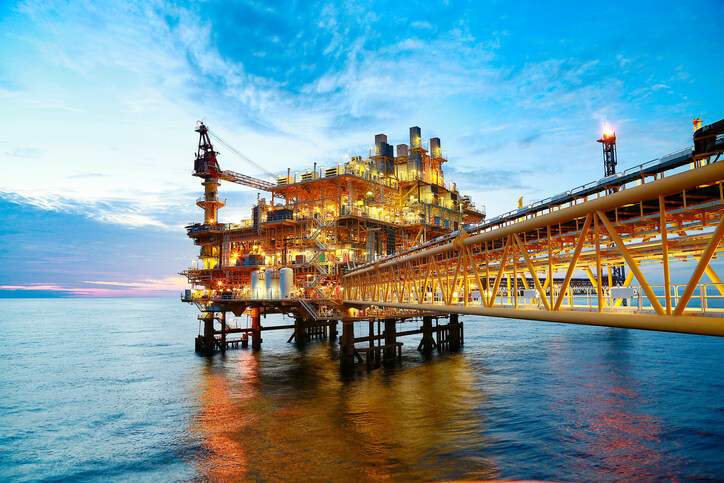
The federal agency tasked with overseeing the nation’s offshore oil and gas operations hasn’t done nearly enough to address the growing cyberattack threat facing the industry, despite the catastrophic consequences that could potentially result from such an event.
Offshore Drilling Cyberattacks: The Scope of the Threat
According to a newly released report from the Government Accountability Office (GAO), more than 1,600 oil and gas facilities are currently operating in U.S. Coastal waters. Because they’re located miles from land, getting assistance to these operations is difficult in an emergency, not to mention time-consuming.
Cyberattacks on offshore facilities by state actors, cybercriminals, and others are a growing threat. In fact, the federal government has already identified the oil and gas sector as a target of malicious state actors. Yet while the Department of Interior’s Bureau of Safety and Environmental Enforcement (BSEE) announced plans to address cybersecurity in 2015, GAO investigators found that the agency has taken little in the way of action since then.
Unfortunately, the true scope of the cyberattack threat facing offshore operations is difficult to determine. While no federal officials or industry representatives contacted by the GAO were aware of any cyberattacks against offshore oil and gas infrastructure, the report also noted the absence of a mandate that would require offshore drillers to report any such attacks that do occur.
Offshore Cyberattack Could Cause Deepwater Horizon-Like Catastrophe
Modern offshore exploration and production methods that increasingly rely on remotely connected operational technology may be particularly attractive targets for bad actors. Older offshore infrastructure also poses a risk, as the technology used to operate these assets tends to have fewer and less robust cybersecurity protections in place.
The GAO warned that a successful cyberattack on offshore oil and gas infrastructure could cause significant physical, environmental, and economic harm, even going so far as to suggest that a worst-case scenario could lead to loss of life and environmental wreckage reminiscent of the 2010 Deepwater Horizon disaster. While that catastrophe resulted from a malfunctioning blowout preventer rather than a cyberattack, 11 offshore workers lost their lives in the explosion, many others were injured, and billions have since been spent to mitigate the damage to fragile Gulf Coast ecosystems.
What Has the BSEE Done to Address Offshore Cybersecurity?
In 2015 and 2020, the BSEE initiated efforts to address cybersecurity risks, but neither effort resulted in concrete action. Earlier this year, the agency launched yet another such initiative, even hiring a cybersecurity specialist to lead it. However, bureau officials later said the initiative would be paused until the specialist was adequately versed in the relevant issues.
“Absent the immediate development and implementation of an appropriate strategy, offshore oil and gas infrastructure will continue to remain at significant risk,” the GAO report concludes. “Such a strategy would call for, among other things, an assessment of cybersecurity risks and mitigating actions; and the identification of objectives, roles, responsibilities, resources, and performance measures.”
Undefeated Offshore Injury Lawyers: Call 1-888-934-1263 or Click Here for a Free Consult.
Our Undefeated Maritime Lawyers have won Billions for workers and their families in connection with the worst offshore accidents and explosions in recent history, including highly favorable (and confidential) settlements for five offshore workers injured during the BP Deepwater Horizon explosion.
In addition to our success on behalf of Deepwater Horizon survivors, our offshore injury attorneys also recently recovered:
- $30 Million settlement for a Jones Act seaman
- $9.1 Million Settlement for Injured Maritime Worker
- $5.5 Million Jones Act Seaman Settlement
- $3.6 Million Settlement for Jones Act Client
To learn more about our success, visit our “Results” page or Click Here to see what our clients have said about their experience with our firm.
If you or someone you love were hurt while working aboard an offshore drilling platform, drill ship, or support vessel, our attorneys are ready to help. Please call 1-888-934-1263 or click here to fill out our confidential contact form.
We’ll answer your questions, explain your rights, and provide the information you need to make the best decision for you and your family.
Your consultation is free and confidential, and you won’t pay us a dime unless we win your case.